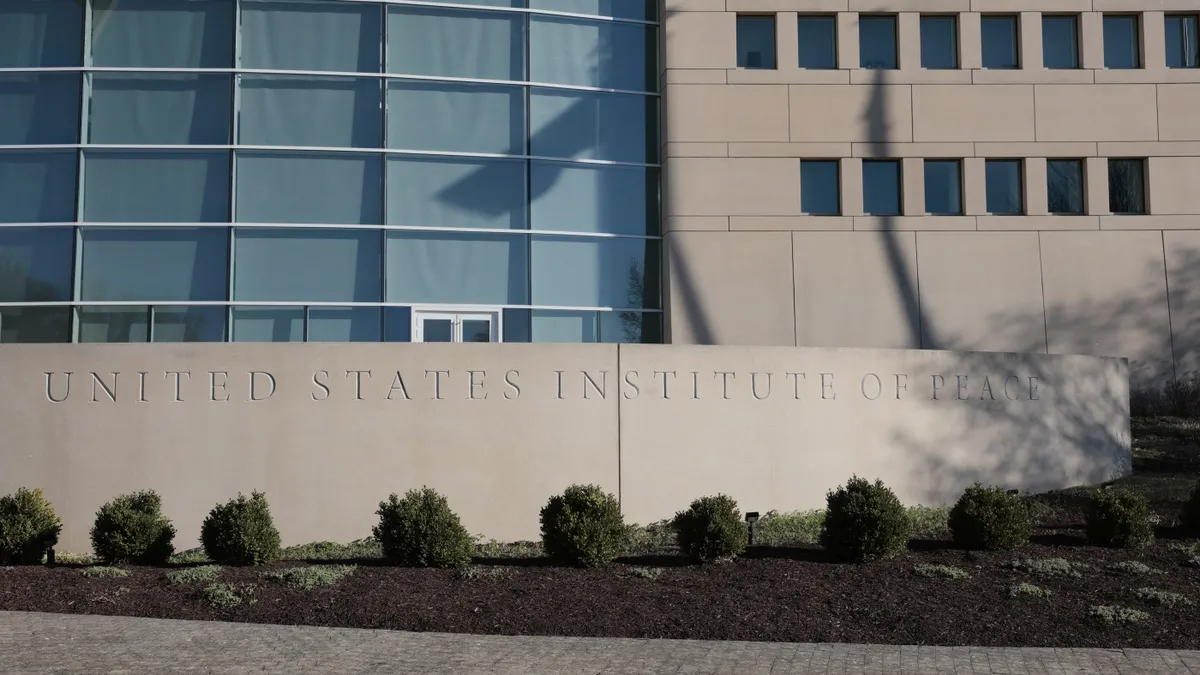
A federal judge has intervened to block the Trump administration's attempt to take control of the United States Institute of Peace (USIP), asserting that President Trump exceeded his authority by unlawfully firing the organization's board members. U.S. District Judge Beryl Howell ruled on Monday that the board members and president of USIP should be reinstated, emphasizing that the actions taken by Trump represented a serious overreach of executive power.
In her comprehensive 102-page ruling, Judge Howell declared that the transfers of USIP's assets, including its headquarters, initiated during the administration's takeover, are null and void. She characterized Trump's actions against the institute as a "gross usurpation of power," highlighting the negative impact on the dedicated leadership and employees of USIP, who deserved better treatment.
Earlier this year, President Trump dismissed the board members and president of USIP, arguing that the organization fell under the purview of the executive branch. Subsequently, a team from Elon Musk's newly formed Department of Government Efficiency forcefully seized control of the institute's headquarters and attempted to dismantle its operations. In response, five board members filed a lawsuit, claiming their removal was unlawful and seeking reinstatement.
Following Howell's ruling, over 20 former employees of USIP celebrated outside the institute's headquarters in Washington, D.C. Their joy was palpable, as expressed by Tonis Montes, a former senior program officer for the nonviolent action team. Montes described the moment as "incredulous" and "exciting," reflecting the emotional toll the firings had taken on the staff, who lost access to their work email and resources in March.
Nicoletta Barbera, an expert on Africa, emphasized the importance of USIP, stating, "If Americans believe in peace and security, they should believe in the United States Institute of Peace." She underscored the organization's commitment to American values, advocating that peace is more effective and cost-efficient than war. Another colleague, Mary Holmcrams, noted that this case represents a significant instance of government overreach, expressing hope that it will set a precedent for similar situations involving the Department of Government Efficiency.
The legal case presented before Judge Howell largely revolved around whether USIP is classified as part of the federal government and, if so, its place within the executive branch. The fired board members contended that USIP operates independently and is not a government entity, while the Trump administration argued otherwise, claiming the institute falls under executive authority.
In her ruling, Howell affirmed that USIP possesses a unique structure and function, stating that it is neither a conventional executive branch agency nor a fully private nonprofit corporation. She concluded that USIP is indeed part of the federal government, but not part of the executive branch. Instead, it operates as an independent think tank that supports both the Executive and Legislative branches through international peace research, education, training, and information services.
Due to the unlawful nature of Trump's actions—including the firing of USIP board members and the subsequent dismantling of its operations—Judge Howell deemed these measures illegal. George Moose, the acting president of USIP and a former diplomat, expressed delight at the ruling, highlighting its affirmation of the intentional independence that Congress established for USIP.
Moose acknowledged that even if the government does not appeal Howell's ruling, it will take time to reinstate USIP's full operations. The Department of Justice has yet to respond to requests for comments regarding the ruling, leaving uncertainty about potential appeals and the future of the organization.